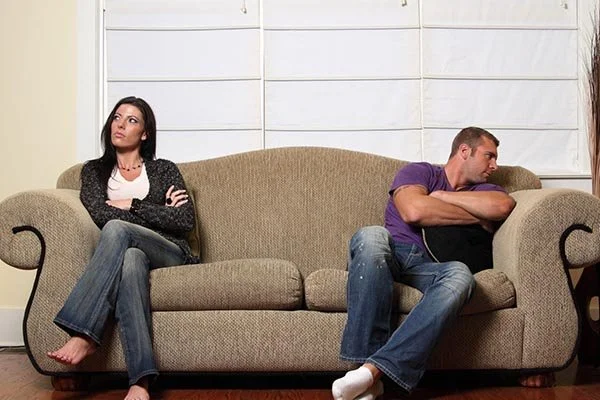When One Partner Grows: Recovery, Relationship Imbalance, and the Need for Shared Healing
There comes a point in many relationships where one partner begins to change—maybe through therapy, recovery, or personal growth—and the dynamic between them starts to shift. What once felt balanced, or at least stable, now feels uneven. And that change can be unsettling for both people.
Sometimes, growth brings relief. Other times, it reveals what’s been quietly simmering under the surface for years: power struggles, emotional distance, patterns of compliance or control, and ways each partner has adjusted to avoid rocking the boat.
And when those old patterns start to break down, the relationship itself is invited into transformation.
Relationships That Function on Silence or Control
In some relationships, the dynamic is quietly imbalanced. One person may take the lead, make the decisions, or hold emotional authority. The other might cope by staying quiet, accommodating, or minimizing their needs to keep the peace. Sometimes this happens consciously. Often, it’s just what both partners learned to do to survive closeness.
These patterns aren’t always easy to see until one person starts to heal.
Maybe it’s the partner who used to avoid conflict who is now speaking up more often. Maybe it’s the person who used to over-function emotionally or carry the relationship’s stability who now feels burned out. Whatever the scenario, the old system can no longer operate the way it did before.
We Choose Partners at a Similar Level of Emotional Growth
Most couples find each other at a place that matches their level of emotional differentiation—that is, their ability to stay connected to their own needs, beliefs, and identity while also remaining emotionally close to someone else. But when one person begins to grow, that balance shifts.
The partner growing might begin to set boundaries, name their desires, or stop avoiding conflict. This can create real tension—because while growth is good, it also disrupts the status quo. And unless both people are willing to reflect, adapt, and stretch together, the disconnection can widen.
The partner who hasn’t begun their own work might feel defensive, confused, or even rejected. And the partner who has started to grow may begin to feel alone in the relationship.
The Cost of Uneven Healing
Relationships struggle when only one person is doing the work. Even the healthiest growth can become a source of pain when it isn’t met with curiosity and commitment from both sides.
If you’re the one working to grow, it may be painful to notice you no longer feel at home in a dynamic where silence or self-sacrifice used to keep the peace. You might feel less willing to accommodate, less afraid to speak, more aware of the ways your needs have gone unmet. This can be a beautiful step forward—but it also changes what you’re available for in the relationship.
If you’re the one feeling caught off guard by your partner’s changes, it’s easy to feel blamed or left behind. But the invitation isn’t to be someone you’re not—it’s to be someone who’s willing to look inward, too. To name your own patterns. To get curious about what you learned in your family, what you protect yourself from, and what you want to build differently now.
Real Intimacy Requires Shared Effort
It’s not enough for one person to carry the emotional weight of change. Relationships need mutual transformation to truly thrive. Not in perfect synchrony, but in honest effort.
That means both partners learning how to:
Speak with vulnerability instead of defensiveness
Set and honor boundaries without punishment
Rebuild emotional safety when the ground starts to shift
Share the weight of emotional labor instead of defaulting to old roles
Couples therapy can help you see the system you’ve been living in—and imagine a different one. One where both people are known, heard, and empowered.
Growing Together, Not Apart
Growth doesn’t have to mean growing apart. But it does mean growing differently.
If your relationship is being tested by one partner’s healing work, you’re not alone. Many couples reach this moment. The key is how you respond. Will you both step into the change? Will you explore what needs to heal—not just in the past, but in how you relate to each other today?
Our couples therapists are here to help you navigate that shift—with compassion, clarity, and tools that move you toward each other instead of away. Call today to schedule a session with one of our specialty trained couples therapists and take the next step in growing together.

